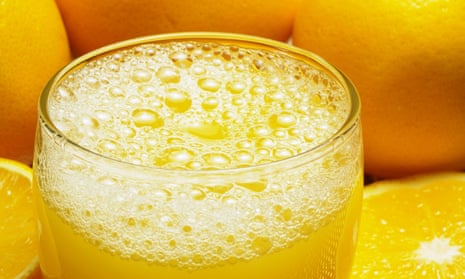Cats should not drink orange juice. Citrus fruits like oranges can be harmful to felines.
Navigating the feline-friendly diet spectrum, cat owners often wonder about the suitability of certain human foods. Orange juice, with its zesty allure, might tempt pet parents to share this vitamin-packed beverage with their furry companions. Yet, not all human favorites are safe for cats.
Recognizing the nuances in a cat’s dietary needs is crucial for their health and well-being. Moreover, understanding that a cat’s digestive system differs significantly from ours helps us make informed decisions about their nutrition. It is important to remember that treats suitable for humans might not only be unbeneficial for cats but could even pose serious health risks. Thus, it’s essential to know what is and isn’t cat-friendly when “squeezing” the day with your feline friend.
Contents
The Feline Diet Dilemma
Cats have very specific dietary requirements that differ considerably from humans. Unlike people, who are omnivores, cats are obligate carnivores. This means they derive most of their nutrition from animal-based proteins and have a limited ability to digest plant-based nutrients. Feeding your feline friend orange juice may seem like a harmless treat, but it’s important to recognize the potential risks involved.
The acidic nature of orange juice, combined with high sugar content, can lead to digestive upset in cats. Their sensitive digestive systems are not well-suited to handle citric acid, and the sugar can cause a spike in blood glucose, with potential long-term health implications. Furthermore, oranges and all citrus fruits contain essential oils and psoralens, which can be toxic to cats, possibly resulting in vomiting, diarrhea, or even more severe symptoms like depression and photosensitivity.
Alternative Refreshments For Tabby
Cats need to stay hydrated, and the best way to ensure this is by offering them clean, fresh water. While some felines might show curiosity towards different beverages, it’s important to provide safe drinking options for cats to prevent health issues. Citrus juices, like orange juice, are not recommended due to their acidity and potential toxic compounds.
- Pure, filtered water – always the safest and most hydrating choice for feline friends.
- Unsweetened coconut water – occasionally, in small amounts, as a treat (ensure no added ingredients).
- Homemade bone broth – a tasty hydration booster, but ensure it’s free from onions, garlic, and too much salt.
It’s crucial to consult your vet before introducing any new drinks to your cat’s diet, ensuring their safety and well-being.
Feline Health And Nourishment
Cats naturally shy away from citrus fruits like oranges, and for good reason. The essential oils and psoralens found in oranges can be harmful to them. These substances can cause gastrointestinal upset, including vomiting, diarrhea, and possibly even central nervous system depression. Ingesting a significant quantity of orange juice might lead to more severe reactions.
When considering a nutritional balance for cats, it is crucial to remember that their diet is drastically different from humans. Required nutrients, such as taurine—an amino acid—must come from their food, typically through a diet rich in animal protein. Orange juice lacks in essential nutrients that cats require and instead offers high sugar content and acidity, which is not conducive to a feline’s dietary needs.

Credit: www.theguardian.com
Frequently Asked Questions On Can Cats Drink Orange Juice? “squeeze” The Day Or Run Away?
Is Orange Juice Safe For Cats To Drink?
No, orange juice is not safe for cats. Citrus fruits like oranges are toxic to cats. They can cause vomiting, diarrhea, and sometimes central nervous system depression. Always keep orange juice away from cats, and be sure to provide them with cat-safe options.
What Happens If A Cat Drinks Orange Juice?
If a cat drinks orange juice, they may experience gastrointestinal upset. Symptoms include vomiting, diarrhea, and a possible allergic reaction. In severe cases, depression or photosensitivity may occur. It’s best to avoid giving cats any citrus-based products.
Can Orange Juice Benefit A Cat’s Health In Any Way?
Orange juice does not offer health benefits to cats. Cats are obligate carnivores, meaning their diet should primarily consist of proteins. Citrus fruits like oranges are not a natural part of a cat’s diet and can be harmful due to their acidity and essential oils.
Are Any Citrus Fruits Safe For Felines?
Citrus fruits are generally unsafe for felines. They contain compounds that can be toxic to cats, including essential oils and psoralens. It’s important to avoid giving cats lemons, limes, grapefruits, or oranges to ensure their health and safety.
Conclusion
To wrap it up, cats and orange juice don’t mix. It’s best to keep citrus away from your feline friends for their health and happiness. Offer them cat-safe treats instead, and ensure they stay hydrated with clean, fresh water. Remember, what’s good for humans isn’t always suitable for our pets.
Keep it simple and safe – stick to water for whiskered companions.

Katie Lindsey is a passionate cat lover and founder of Cats Solution, a comprehensive resource for all things feline. With a lifelong love for cats and extensive knowledge in their care and behavior, she provides expert advice and solutions to cat owners. Through her website, Katie fosters a supportive community where cat enthusiasts can find guidance and heartwarming stories. A dedicated advocate for animal welfare, Katie also promotes responsible pet ownership and adoption. Join her on this purr-fect journey celebrating the joy of feline companionship.

